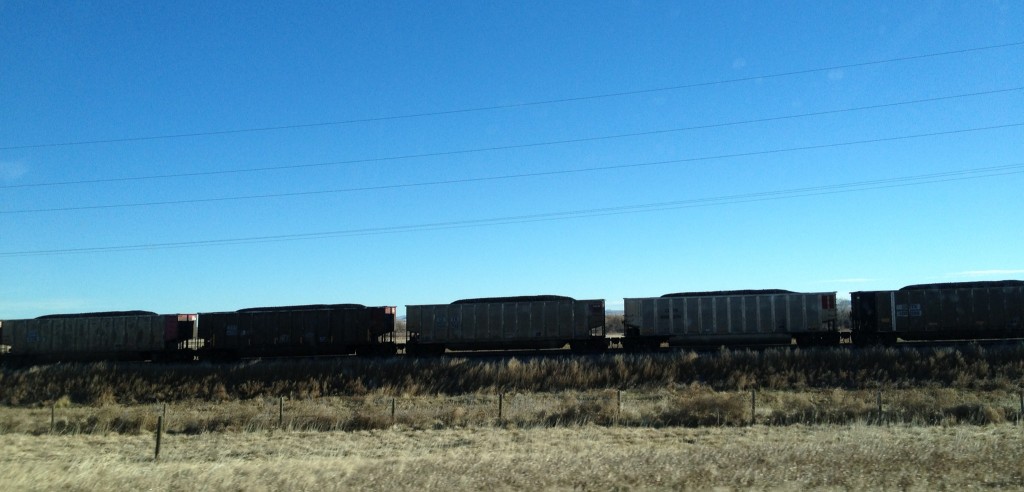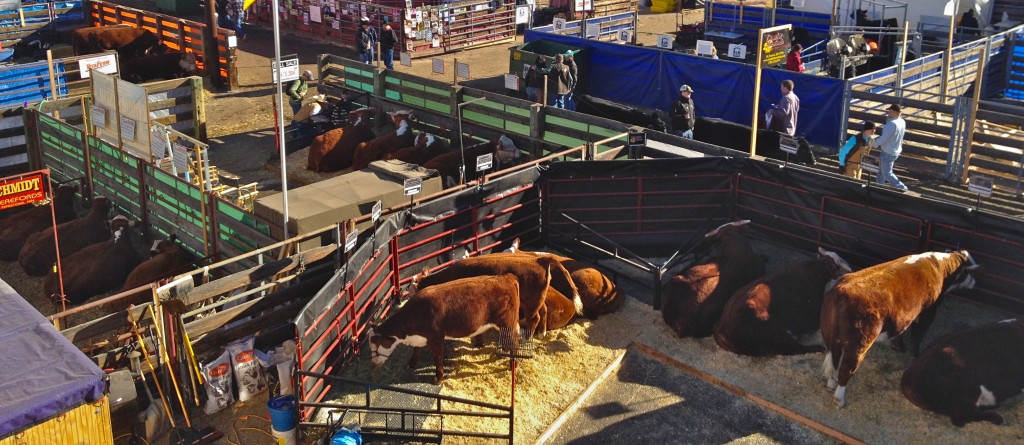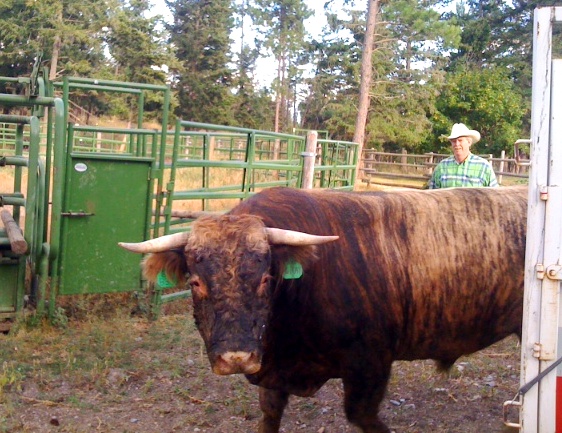
Ed Jonas tending to his cattle. Courtesy of Blacktail Mountain Ranch.
Ed Jonas and his Blacktail Mountain Ranch breed cattle so healthy that it is considered heart healthy. That’s right, a red meat that is healthier than chicken, bison, and turkey.
What does heart healthy beef have to do with environmental professionals? More than you might think. The connection between your health and environmental health is not hard to make. If unnatural toxins enter into the environment it can directly and indirectly impact our health through exposure to polluted land, air and water. If unnatural materials, such as genetically modified, antibiotics, or herbicides, are introduced into the food we eat it can cause known and unknown harm to our bodies. There are environmental professionals who devote their careers to reducing toxic exposures through safer products and work practices. That’s not much different than a rancher taking similar steps to reduce toxic exposure by providing healthy cattle. It takes a special kind of rancher to raise such a cattle and that rancher is Ed Jonas.
Ed and I met at the Craggy Range Bar in Whitefish, MT to talk about what drove him to raise healthy cattle and to sample some his delicious beef. Ed is a Vietnam veteran who was in Air Force intelligence and a pilot. He has a law degree from Rutgers Law and went into aviation law representing pilots and is now a cattle rancher. That’s quite an interesting life.
When Ed got out of the Air Force he saw the health issues of some of his friends who had served. That is when he asked himself. “What can I do to improve my health?”, which drove him to use healthy eating to keep a healthy body. Edible healing? I’ve believe I’ve heard that before. As an example, he told me a story about his mom telling him to just put some creamer in his coffee. She said, “It’s just like milk.” Ed looked at the ingredients and thought, “There’s nothing like milk in here.” This is just one simple example of countless similar stories that could be told about recognizing the difference between real food and processed food.
When the last of Ed’s three sons went off to college, he moved to Montana to start raising cattle. He was sampling beef at rodeo and asked where the meat had come from? He was surprised that it wasn’t from Montana. With all of the good ranching land in Montana, why was he eating beef from Washington. This was just another step that helped lead him to breed a local, healthy, grass-fed beef.
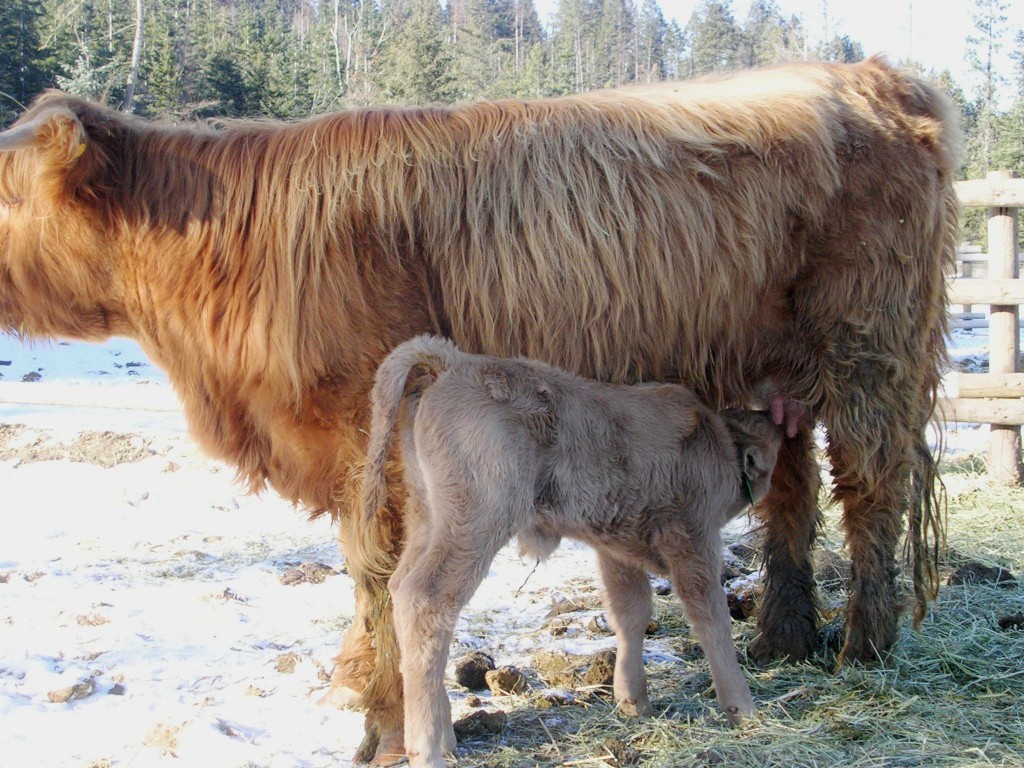
The long-haired HighMont cattle. Courtesy of Blacktail Mountain Ranch
Blacktail Mountain Ranch’s beef is a unique breed of cattle called HighMont Beef. Ed crossed the Piedmontese breed with the ancient cattle breed of the Scottish highlands. Both of these breeds are known as low-fat and low cholesterol. It’s not only the breeds, but how Ed cares for the animals. He personally walks and handles them daily to keep a calm stress-free environment. The result is a healthy, grass-fed, low-fat, low cholesterol HighMont beef, which has been endorsed by cardiologists. The Ranch was even recently featured in Sunset Magazine.
Ed and his wife Connie have worked for years on the ranch and at the beginning they weren’t making a whole lot of money and were putting in non-stop hours. But they were producing a quality product to be proud of and they loved it. Ed believe’s he could not have done it without Connie. He called her the original pioneer woman, but when they met Connie was a vegetarian. Her involvement with the Ranch has made her a believer in this beef. 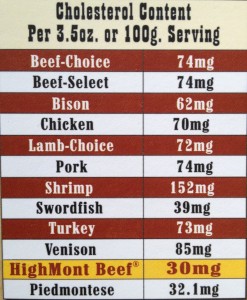
As a growing desire builds for healthier, natural, real food, Blacktail Mountain Ranch has been providing it locally. It’s just unfortunate that the rest of the country doesn’t have access to it or a similar product. The Ranch is currently looking at expansion and relocation, so you many soon be able benefit from the heart-healthy beef. As Ed and I finished our meal, he commented, “It’s all about health. I saw my mom die of cancer. I want to be around for my grandkids.”
You can contact the Blacktail Mountain Ranch, get more about the nutritional content of the beef, and read their endorsements at blacktailmountainranch.com.

